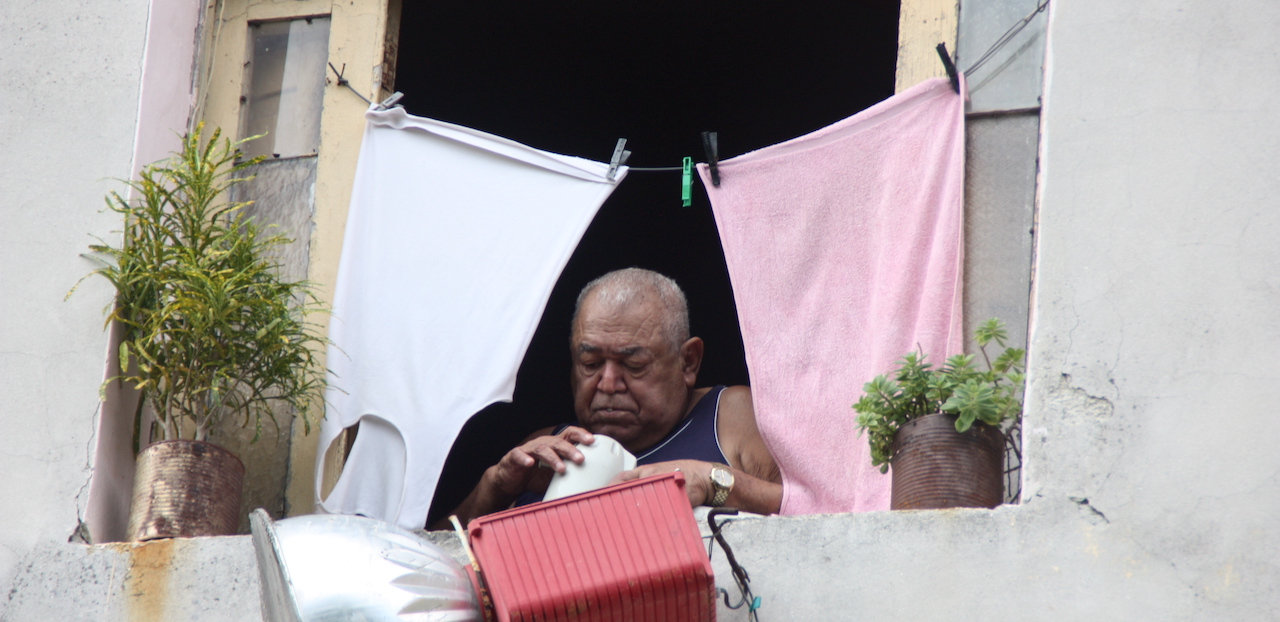In recent decades, the Cuban population has aged rapidly. The country is the "Latin American champion of population aging," with 2,328,000 older adults, accounting for 20.8% of the total population.
What policies does the state have to deal with this demographic problem? What specific protection, from the legal point of view, exists for this 20.8% of the population, which in 2025 is expected to rise to 25%? These questions take on new importance with the implementation of the legislation known as the Tarea Ordenamiento, or Ordering Task.
Article 68 of the Cuban Constitution states that every working person has the right to Social Security, and that the state guarantees citizens adequate protection if they are prevented from working due to age, maternity, paternity, disability or illness.
Article 70 states that the state, "through social assistance, protects persons without resources or protection, not apt for work, and who lack family members in a position to help them; also to receive aid are "families that, due to insufficient income, require it, according to the law."
According to Article 88, "The state, society and families, as far as each is concerned, have the obligation to protect, assist and facilitate the conditions to meet the needs and raise the quality of life of older persons. Similarly, they are respect their self-determination, guarantee the full exercise of their rights, and promote their social integration and participation."
Despite the Social Security that workers are guaranteed under the Constitution, many elderly people who worked while they were old enough now sell bags on the Cuban streets, or line up early to buy and then resell newspapers. Some who are still physically able are gas delivery men: they queue up at the point of sale, buy the gas bottle, take it to the customer's house, and hook it up. Many work illicitly, doing little deals "under the table." Others are completely destitute.
Even before the Tarea Ordenamiento, when there were problems with the distribution of rationed bread, many Cubans resorted to bread on the market, which cost a peso. The elderly who only had their pension could not afford it. Now that the pensions are increasing, the bread distributed through the ration book will cost a peso. Will the retired be able to pay for it? How much will the one on the market cost from now on?
It is not necessary to make complex calculations to realize that if the increase in pensions is accompanied by equal or greater rises in the prices of basic products, and subsidies that the state considers unnecessary are eliminated, the elderly’s quality of life will not improve, and could get even worse. If they could not make ends meet before, they will struggle even more going forward.
In 1996 the State created the Integral Elderly Assistance Program, which was complemented, in 1998, by the Family Care Program (FCP/SAF), part of Social Assistance, with the objective of supplementing the diets of elderly and disabled people, high-risk pregnant women, and at-risk social cases with insufficient income and a lack of family members in a position to provide assistance.
This assistance is offered at community soup kitchens from Monday to Sunday, from 11:00 am to 1:00pm, for lunch, and from 5:00 pm to 7:00 pm, for dinner. This service must guarantee proteins, fats and carbohydrates, and deliver a person’s daily need for at least 1,200 calories. In practice, the quantity and quality of the meals are usually deficient.
But even the FCP does not reach all the elderly in the country. In order to have access to these kitchens, people must be approved by the Popular Power’s Municipal Administration Councils pending an evaluation by the local Labor Directorates. It is a requirement that the beneficiaries not have family members who can provide such care and maintenance for the elderly. The Family Code establishes that individuals have the duty to provide support to both descendants and ascendants.
But, how is it determined whether or not family members can meet this obligation? If the older adult has five children, and each of them has offspring, what is their real capacity to provide their parent with care and support?
If the senior has children abroad, is it assumed that he does not need social assistance? What happens if those children are unemployed?
In addition, the prices of the meals offered through the FCP have not exceeded one peso - until now. But, what will happen after January 1st?
Nothing of what has been announced so far about the impending legislation suggests that the state has thought of measures to improve the conditions of this group, accounting for almost 21% of the population, whose situation was already critical before the pandemic, dollarization and monetary unification.
The Family Care Program dates from back when the percentage of older adults in the country did not exceed 16%. It needs to be revamped, and others need to be created to care for the elderly. If the Cuban State has not been able to implement measures to avert this demographic trend, it should at least establish programs to alleviate it consequences and provide care for the growing population of seniors.
